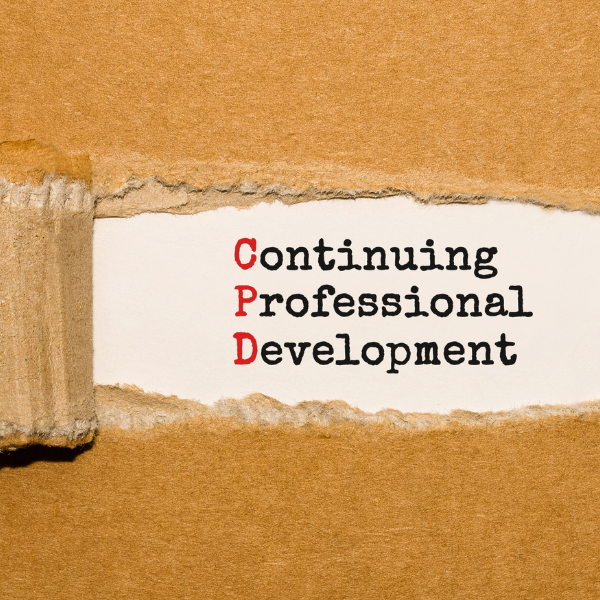All Things Admin Joins ASAP. Learn More ›
What HR Wants
November 12, 2024

HR professionals at the SHRM event answer some of your admin questions around job titles, desirable skills, and more.
Recorded at SHRM 2024 and produced by the American Society of Administrative Professionals - ASAP. Learn more and submit a listener question at asaporg.com/podcast.
Download this episode for later and make sure to leave us a 5-star review on Spotify and Apple Podcasts!
Transcript
[music playing]
Leah Warwick: Hi, everyone. I'm Leah Warwick, and you're listening to "The Admin Edge." We're back with this season recorded at the big HR event called SHRM, asking HR professionals some of your questions around job titles, desirable skills, and more. First, let's listen to my conversation with Stephanie Randall. Stephanie is the Director of HR with Employ Prince George's, a nonprofit that helps those who are unemployed enter or re-enter the workforce. Stephanie speaks first here, describing what she's found most helpful when preparing interviewees.
00:00:43
Stephanie Randall: Talking about interview etiquette, giving them some of those questions and things and preparing them in multiple ways – definitely panel interviews; that's a big thing these days – and then also prepping them with a skills course such as technology courses, because people, especially our [Encore] program [for] our immigrant workers, some of them may not be tech savvy, so we can't take that for granted. We want to ensure that we're working with applicants, finding out if we need to have them come on-site and not just assuming we can shoot them an email and they'll be able to follow it on their own.
00:01:15
Leah Warwick: From your experience working with people who might be a good fit for administrative roles, what kind of training do you feel would be essential for those folks?
Stephanie Randall: I definitely think some of the things that are essential for us is definitely the project management side, being able to take on tasks and be autonomous, right? Like be able to work on your own and have those project deadlines, and being able to map it out for themselves to know, "Hey, I had these ten tests. What things can I do today? What things are going to take me two hours to do versus like five hours to do?" And then bridging that gap so that they can be successful in their role would be really helpful.
Leah Warwick: Yes, absolutely. You mentioned technology, and having the blend of what we call "power skills," like communication, and then the hard skills, like technology and efficiency frameworks. How do you balance those? And do you feel like administrative professionals especially need that balance and have to have both?
00:02:15
Stephanie Randall: They definitely do. I think that having that personal touch – I am such a relational person. I think that that's really critical in any role you go to. You can be great with hard skills, but if you don't have those soft skills, that also can kind of be a dealbreaker, so you need to make sure that you're being personable, that you also nowadays need to have emotional intelligence. Read the room. Understand what people are trying to say and kind of reading between the lines, and asking those questions and building that rapport. But also, of course, you need to have the technical skills. Email is a very intricate thing. I had to walk a staff person through how to recall an email the other day, and it took some time for them to get it. But that is an essential thing in this day and age. We make mistakes. So that little, simple tool is something that they should have in their back pocket.
00:03:00
Excel gives people kind of a problem, definitely formulas if you don't use it every day. And also, sometimes if you don't use it, you lose it – you know the old saying? But I think that that's where we see some of the biggest learning curve with processing data, doing fee lookup and things, where it may be a little bit more technical, versus some of the day-to-day things you can do in Word, which is mainly just reports and things like that. So, I think that's been the biggest learning curve for our staff.
Leah Warwick: We do have some listener questions. I'm going to try to find one that I feel like would be good for you to answer. This is a common struggle with administrative professionals: deciding on a title. There are so many different titles out there. This person writes that: "Often I see job listings for an administrative assistant when that role supports an executive, or an executive assistant when it supports of a team of managers. So, the question is: How can administrative professionals respectfully advocate for HR professionals to ensure that their title aligns with the specifics of their role?"
00:04:01
Stephanie Randall: Yeah, I think that's such an awesome question. The first thing: get your foot in the door. Get your foot in the door and then invoke change, right? When you're in your position, start looking at some of your day-to-day tasks. What does that really encompass? What do you feel like the role is? And then look at positions that are comparable to your role and what their titles are and how the gap and things like that can be bridged. You also want to know that certain things are industry specific. Although some people are concerned about the title and sometimes, they feel like the title is a big deal, sometimes it's really about the work that you're doing and kind of putting an emphasis on that. Be a change agent. Go in and make the necessary suggestions. Write it out, like: "Hey, this is some of the things that are gaps in my job description. I think that these are some of the things that I do. Maybe this is a more appropriate title that aligns with the current work I'm doing."
00:04:50
And I think also, just again, building that rapport and making sure you have the relationship. The tone and the timing are very essential, so make sure that you read the room and know when it's a great time to broach that subject.
Leah Warwick: Now let's listen in to Executive Assistant [Garnet Valliere] interviewing Rachel Rice. Rachel is the director of administrative coordination at the Corporation for Supportive Housing in Chicago. We learned that Rachel's entire team is headed to our Administrative Professionals Conference this year, which is very exciting. Here's Rachel, talking about how she got buy-in from her organization to attend APC.
Rachel Rice: One of the ways that we can continue to thrive as an organization and ensure that we're contributing to quality is establishing baseline skillset for administrative roles. There is no such thing as "this person only does this" or "this person only does that." Administrators need baseline knowledge across a myriad of different domains, and that's what helped us really sell it to the senior leaders in the our board.
00:05:58
And also understanding what's important to them helped me to communicate the "why." Because administrative services was something that was underdeveloped in the organization – we're a program: technical assistance, financial modeling, systems modeling, forward organization. So, explaining it from that perspective, like, "This is how we can be of better service to your project managers, to your program managers, to your directors, to your managing directors. If our team had more dedicated time to learn about systems and software and the specific admin things, this is how we can contribute to the bottom line and better outputs." It took a lot of work, and it's still work in the making, but I'm dedicated, and I'm so happy to be at the helm.
00:06:46
Garnet Valliere: That's great, and I appreciate that your company is doing that and that you're an advocate. That's wonderful. What are some of the soft skills versus tactical skills that you think in the standard skillset – what do you think? Do you think it's the percentage of soft skill is higher than what the percentage of tactical skill would be that would be needed in standardizing what your admins would do?
Rachel Rice: That's a very interesting question. I think, honestly, you need a perfect blend of both because most of us come to this field because we like helping people, but sometimes passion for people can get in the way of progress, and that's why you can't have too much soft skill. You have to have the perfect intersection of soft and technical skill.
One of the most important soft skills that you need as an administrator is listening. Listening is your magical superpower because this is how you get buy-in. You listen. You remember. You take mental notes. Some things you can't write down immediately, but remember those top three things about that department or that team or that person so that you can go back, and they're going to remember that you remembered, and that helps you to build and create a relationship. So, for me, listening is what initiates that relationship and helps people to gain trust in you as an administrator. They just start telling you things and asking you for help and seeing you as a resource and not as someone to just, "Here, do this."
[music playing]
Leah Warwick: Next, let's hear from Lindsey McDonald. Lindsay is a Talent Acquisition Manager on the HR team for an oil and gas company in Texas. We asked Lindsey, "What is one of the top skills you should continue to stay on top of as an admin today?" and she had an interesting response.
Lindsey McDonald: So, for me, as a recruiter, I think the first thing would be résumé skills. I feel like résumé writing is kind of a diminished practice these days. I know, growing up, I learned in school how to put together a résumé, and I don't think a lot of people realize that, that that's going to be your first impression. For admins and executive assistants, just keeping that up to date, not making it too long of a résumé or paragraph, and just continuing to develop those admin skills.
00:09:07
But there's a lot of resources out there that they can kind of look into and continue growing. But then also on the admin side, think about your future with that as an admin. What do you want to do? Do you want to move into an executive assistant role? How are you going to do that? Continue to develop those skills, but constantly working on your résumé as well. I was always told, "Develop your résumé for the job that you want." So, if you're applying for an IT company and you have some experience working with IT as an admin, definitely include that in there, and kind of develop it that way.
Leah Warwick: To hear more from Lindsey and several other professionals we spoke to at this event, read our pieces on the ASAP website: What HR Thinks; Why Leadership Training Matters; and How to Make Your Case for Professional Development. And now, here's Garnet with Vincent Hung, a Recruiting Manager on the HR team at Silver Diner Development. Garnet speaks first.
00:10:09
Garnet Valliere: When you're recruiting and you have the administrative tasks in mind and you're looking at a résumé, what is it you're looking at that you say, "Okay, they'd be a great fit for the administrative piece of this role"?
Vincent Hung: So I definitely look at how well written their résumé is. How their communication is, is a big thing. It's always a positive when they have good email etiquette. That's not a necessity, but it's a huge plus.
Garnet Valliere: What technical skills would they need? Is AI a part of what you're looking for now when you're looking at résumés? Project management? What kind of tactical skills?
Vincent Hung: We're definitely looking at project management. Microsoft Teams is actually a big one, because that's like the linchpin of our whole company. POS integrations and stuff like that. And, of course, obviously we want to look at IT. That's a big thing for us, too. We're looking for specific skills in the technology that we use, while also things that can expand.
00:11:10
So we are looking for people that deal with AI because it's involved in everything that we're using right now, so we need people with that expertise to help us with those tools.
[music playing]
Leah Warwick: Thank you for listening to "The Admin Edge," produced by the American Society of Administrative Professionals. Original music and audio editing by Warwick Productions, with audio and video production at SHRM by 5Tool Productions. If you liked this podcast, please leave us a nice review, five stars, and subscribe. If you'd like to submit a listener question, you can do so on our website at asaporg.com/podcast.











